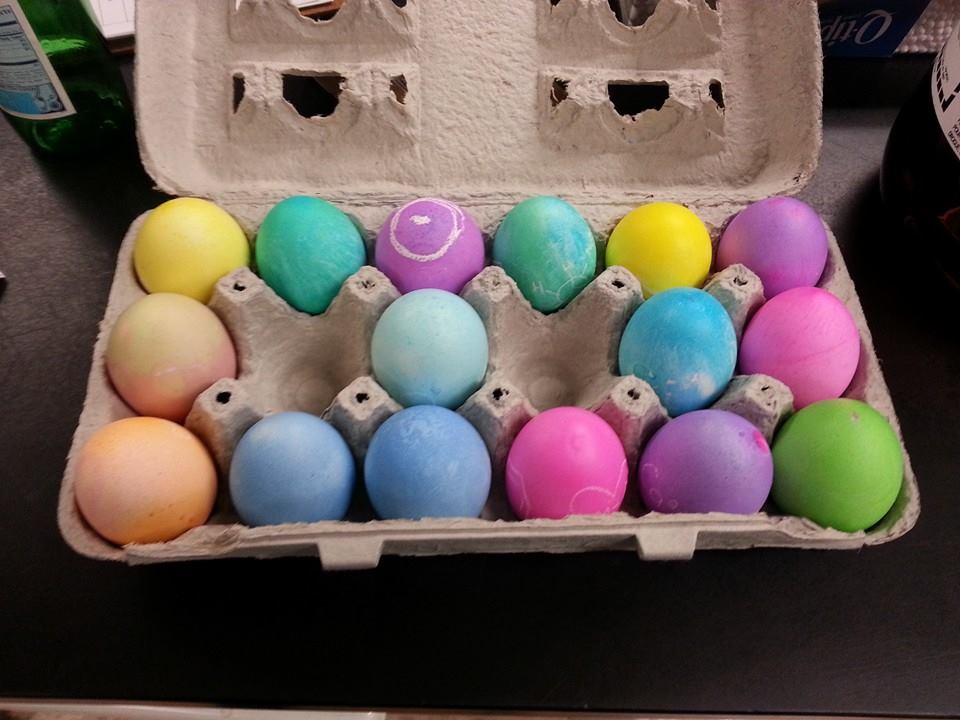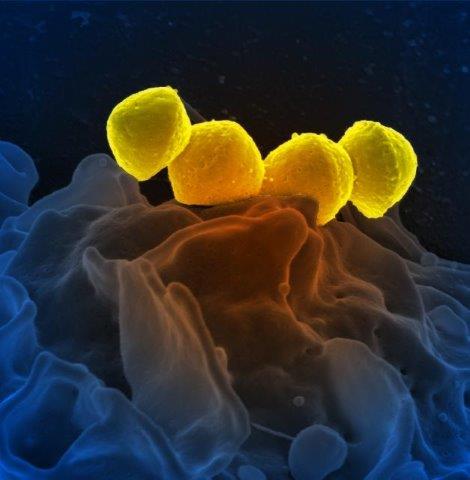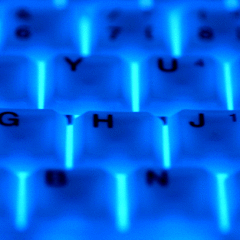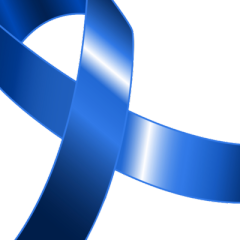Spring with SCC Chemistry Club!
On Friday, March 20, Chem Club got together to celebrate spring and Easter by dyeing eggs. The wonderful rainbow of dyes served its double duty for the chem club members by giving them some insight into the chemistry of dyes as well as giving brilliant colors to the eggs. Egg dyeing is usually done with food coloring and vinegar: in this case, Chem club used egg dye that came in little tablets that were used to dissolve in the...
Discoveries: Could an HIV drug beat strep throat, flesh-eating bacteria?
With antibiotic resistance on the rise, scientists are looking for innovative ways to combat bacterial infections. The pathogen that causes conditions from strep throat to flesh-eating disease is among them, but scientists have now found a tool that could help them fight it: a drug approved to treat HIV. Their work, appearing in the journal ACS Chemical Biology, could someday lead to new treatments. Douglas A. Mitchell and colleagues...
Discoveries: Smart keyboard cleans and powers itself — and can tell who you are
In a novel twist in cybersecurity, scientists have developed a self-cleaning, self-powered smart keyboard that can identify computer users by the way they type. The device, reported in the journal ACS Nano, could help prevent unauthorized users from gaining direct access to computers. Zhong Lin Wang and colleagues note that password protection is one of the most common ways we control who can log onto our computers — and see the...
Volunteer Opportunities at Sacramento School of Engineering and Sciences
The Sacramento School of Engineering and Sciences (SES) is a combination middle/high school located in the Pocket area in South Sacramento. They need speakers for Friday lunch times beginning in November to talk about their journey from student to science or engineering career, as well as mentors for high school senior projects. Questions? Contact Cindy Castronovo, who represents the ACS Sacramento Section on the SES Advisory Board,...
Discoveries: ‘Electronic skin’ could improve early breast cancer detection
For detecting cancer, manual breast exams seem low-tech compared to other methods such as MRI. But scientists are now developing an “electronic skin” that “feels” and images small lumps that fingers can miss. Knowing the size and shape of a lump could allow for earlier identification of breast cancer, which could save lives. They describe their device, which they’ve tested on a breast model made of...




